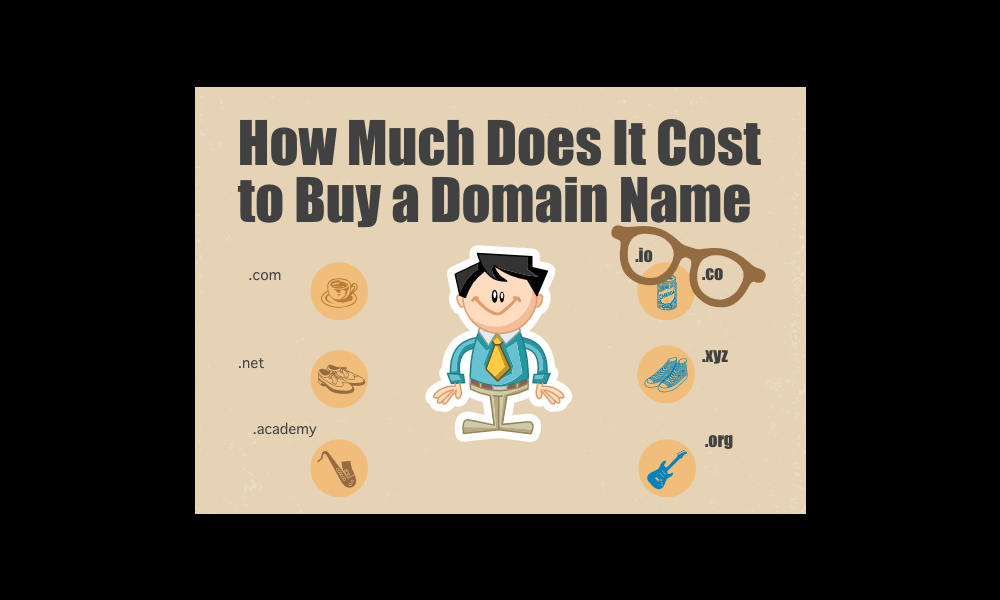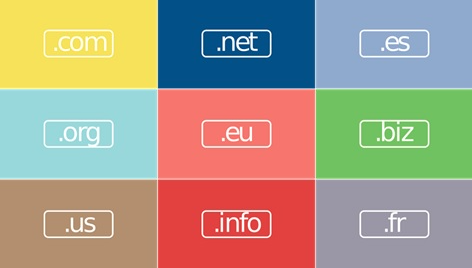How much does it cost to buy a domain name?
- Published on : 2023-04-13 11:26:01

Define Domain Name
A domain name is the unique identifier of your website on the internet. Domain names can also be referred to as URL (Uniform Resource Locator) that can be used to find your website or online presence. The best analogy to understand this, is to compare it to how your home address or phone number can be used to find your home or get in touch with you personally.
Let's understand what a URL comprises of:
Domain name usually comprises of a string of alphanumeric characters and an extension, aka TLD (top level domain). A dash or hyphen (-) is also accepted in the domain name. Some examples are facebook.com, google.com, face-book.com etc. Similarly, some popular extensions are .com, .io, .xyz etc.
How much does it cost to buy a domain name?
So, how much do domain names cost? The price of a domain name could range somewhere from $10 to thousands, if the name is a premium keyword and reserved by the registry. It costs lesser when there are offers and schemes going on. But since the domain market has matured so much since its inception that a whole industry has evolved out as the secondary domain market where people buy, sell and trade domain names for large amounts, especially premium domain names.
Domains sell for millions here and clients are as big as Tesla and Facebook. If you're interested to learn about expensive domain name sales then we've covered top sales from history, in this article here: https://namewallet.co/blog/top-10-domain-sales-in-history/
What are factors influencing domain names cost?
Domain name costs are driven by many things, mostly based on the theory of supply and demand, notably the type of extension, the type of the domain name, it's branding potential, purchasing venue and more.
For example, a company doing business within the UK only, may want a domain with the specific country extension .co.uk; If their choice of domain is already registered by others, then the price for the domain would be higher on the secondary market as it's on sole discretion of the seller, how much he wants to sell the name for. That's called supply and demand.
Another factor is whether the name is an exact match domain i.e, the domain name matches exactly with the business name. The age of the domain also matters while deciding the cost of domain name acquisition.
We've explained all the reasons why a domain name gets expensive, in this detailed blog: https://namewallet.co/blog/why-some-domains-are-expensive
Pro tips to get desired domain name under budget
Anyone that is little aware of domain industry will tell you that all dictionary words are already taken in popular extensions like .com and .io, many of which are most probably on sale for hefty amounts in the secondary market. So, here are some tips and guidelines that businesses and startups can apply while buying a domain name within their budget:
- Be flexible with domain extensions(TLD): If the domain of your choice have all been bought up or listed for high price, then you can try with lesser common extensions like .net, .org or try a ccTLD (country-specific) like .nz or .ca depending on your target market.
- Use a domain broker: You can often buy domains for less with a broker who deals in large volumes.
- Use Domain auction sites: Try GoDaddy Auctions or Afternic to bid on domains
- Negotiate: Contact the seller directly and negotiate a price that's good for both.
We'll cover this topic later in detail. Subscribe your email to our blog, at the end of this blog. [update: Don't forget to check our detailed blog here: https://namewallet.co/blog/Pro-tips-to-get-desired-domain-name-under-budget]
Tips for Negotiating and Buying a Domain from the Secondary Market
If you cannot afford a domain broker separately to acquire the name for you, you can actually start the negotiation on your own, by applying some simple and wise steps, which are as following:
- Know what the domain is worth: Do some research about the domain market, the specific domain and the seller, before you approach the seller. Also, understand what the market pricing is before you make an offer.
- Make a deal: You should be mentally prepared what you're ready to pay. Make an offer with your expectations, and set a limit.
- Be patient: Don't expect an immediate response from the seller. Patience is key in any kind of negotiation.
We'll cover this topic later in detail. Subscribe your email to our blog for more resources, updates and news related to domain industry.
Subscribe
Subscribe to us if you want to be the first to read when we publish cool things about branding, domains and the industry.









